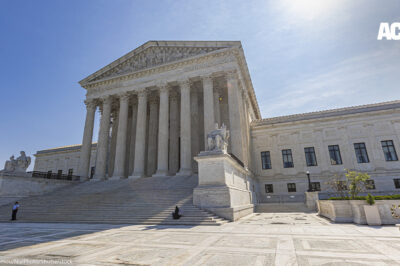In the End, Gov. McDonnell Actually Improves Voting Rights for People with Felony Convictions in Virginia

Remember when Virginia Gov. Bob McDonnell, after declaring April Confederate History Month and not mentioning slavery, messed up again by making Virginia's felony disfranchisement policy even stricter? Even though Virginia already has the harshest disfranchisement law in the nation -- barring people with felony convictions from voting for life unless they apply for restoration from the governor — McDonnell’s staff instructed those with non-violent convictions to explain in writing why the restoration of their voting rights was "justified."
The ACLU called him out, highlighting the fact that his new process was essentially a literacy test.
Rachel Maddow called the essay requirement a "trip in the time machine."
The Washington Post called it "Jim Crow by another name," and argued that people who have completed their sentences should have their voting rights restored "because they are rights. Period."
McDonnell had a choice: he could defend the new letter-writing requirement and try to fend off the onslaught of criticism, or he could use the opportunity to take a serious look at the restoration process in Virginia and make it better, not worse. Fortunately, he chose the latter.
Yesterday, after meetings with the ACLU, the National Association for the Advancement of Colored People and other advocates for reform, the governor publicly issued a new voting rights restoration process that not only eliminates the essay requirement but also makes some other positive changes. For example, people with nonviolent convictions now have to wait two years after they finish their sentences instead of three to submit an application. In addition, the Governor has promised to process applications much more quickly than any of his predecessors.
Mind you, most states have automatic restoration processes and so don't make folks apply to the governor — or anyone, for that matter — to get their voting rights back, and there are still 300,000 people in Virginia who can't vote because of the state's backwards disfranchisement law. McDonnell has the right idea, but even if he makes an earnest effort to implement the new procedures, he is likely to restore voting rights to only a few thousand individuals during his four-year term. That’s helpful, but it barely changes the status quo.
What Virginia needs is meaningful change that will not just ease an already onerous and unnecessary application process but also significantly change the law and bring hundreds of thousands into the political process.
In 2011, the legislature has the opportunity to make meaningful change, and you can be sure we'll be watching.



